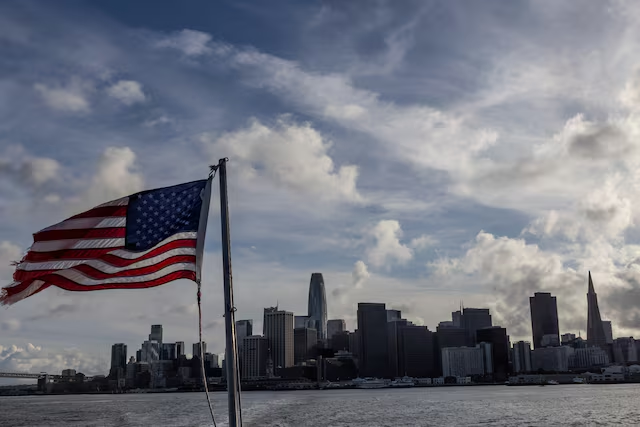- Business
- Flavors and E-Liquids
- Health and Safety
- Top Vape Brands
- Vape Deals and Discounts
- Vape Reviews
- Vaping
- Vaping Culture
- Vaping Guides
- Vaping News and Trends
US Cities, Counties Challenge Trump’s ‘Sanctuary’ City Crackdown

Introduction
Former President Donald Trump has reignited the battle over sanctuary cities, promising an aggressive crackdown on jurisdictions that limit cooperation with federal immigration enforcement. His plan, which includes the deployment of elite federal squads for mass deportations, has been met with staunch resistance from several cities and counties Pineapple Mango Tyson 2.0 7500 across the United States. With local governments bracing for legal and financial battles, the debate over sanctuary cities has once again taken center stage in American politics.
The Legal and Political Battleground
At the heart of this conflict is the ongoing tension between federal immigration authority and state or municipal autonomy. The federal government, through agencies like Immigration and Customs Enforcement (ICE), seeks to enforce immigration laws nationwide. However, many local governments argue that such enforcement efforts undermine community trust, leading them to implement sanctuary policies that restrict local cooperation with federal immigration authorities. Legal battles over these policies have played out in courts for years, with federal funding often used as a bargaining chip to force compliance.
Operation Aurora and Local Resistance
Trump’s latest initiative, dubbed Operation Aurora, aims to deploy federal agents to track down and deport undocumented immigrants, focusing on those with criminal records. This plan has sparked backlash, particularly in Colorado, where state and city officials have vowed to resist federal overreach. Governor Jared Polis has expressed concerns that such aggressive measures could devastate local communities, emphasizing that Colorado will not support mass deportations beyond targeting serious criminals. Local law enforcement agencies in cities like Aurora have echoed this sentiment, emphasizing their role in community policing rather than immigration enforcement.
New York City’s Stance on Immigration Enforcement
New York City, home to a large immigrant population, has long been a focal point in the sanctuary city debate. Mayor Eric Adams has openly rejected Trump’s proposed crackdown, citing the city’s history of refusing to assist ICE in mass deportations. NYC policies prevent law enforcement from holding individuals for ICE unless they have been convicted of one of 170 serious crimes. Despite federal pressure, the city remains committed to protecting its immigrant residents, a stance reinforced by its refusal to participate in ICE’s controversial 287(g) program, which deputizes local officers as immigration enforcers.
Chicago’s Financial Dilemma
In Chicago, the sanctuary city policy has sparked internal debate. Mayor Brandon Johnson has reaffirmed the city’s commitment to being a welcoming place for immigrants, but some city officials worry about the financial repercussions. With Trump threatening to cut off federal funding to sanctuary jurisdictions, concerns over the city’s already strained mike tyson vape budget have grown. Alderman Anthony Napolitano has warned that losing federal support could be catastrophic, exacerbating existing economic struggles. This tension highlights the difficult balancing act cities face between standing by their principles and maintaining essential funding.
Law Enforcement Challenges
One of the key arguments against Trump’s crackdown is the potential erosion of trust between local law enforcement and immigrant communities. Many police departments in sanctuary cities, including Denver and New York, have made it clear that they do not inquire about immigration status when responding to crimes. The rationale behind this policy is straightforward: when undocumented residents fear deportation, they are less likely to report crimes or cooperate with police, making communities less safe. Critics of Trump’s approach argue that prioritizing mass deportations over community policing ultimately undermines public safety.
Broader Economic and Social Implications
Beyond the legal and political ramifications, the economic consequences of a widespread immigration crackdown could be severe. Many industries, including agriculture, construction, and hospitality, rely heavily on immigrant labor. A sudden increase in deportations could disrupt these sectors, leading to labor shortages and economic instability. Socially, the fear of deportation creates stress and uncertainty within immigrant communities, with families facing the risk of separation and displacement. Cities with large immigrant populations argue that inclusive policies promote economic stability and social cohesion, whereas mass deportations could lead to widespread disruption.
Conclusion
The standoff between Trump’s federal immigration policies and sanctuary cities is poised to escalate, with both sides refusing to back down. As legal battles unfold and local governments brace for possible funding cuts, the broader implications of this conflict extend Coconut Tyson 2.0 7500 beyond political rhetoric. With immigrant communities, law enforcement agencies, and local economies all at stake, the outcome of this renewed crackdown will shape the future of immigration policy in the United States. As history has shown, the tension between federal authority and local autonomy in immigration enforcement is unlikely to be resolved anytime soon.



